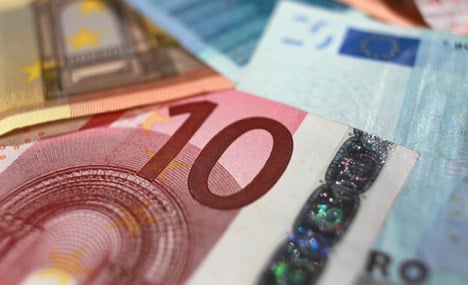While the agency said Italy was the most worrying of the embattled eurozone countries and could see its credit rating cut this month, it also said France’s top triple-A rating was safe for 2012 barring any significant economic shocks.
Speculation has raged for months that France, the second largest economy in the eurozone, could lose its gold standard rating, plunging the bloc further into turmoil.
Continuing a flurry of diplomatic activity to find a solution to the crisis, Merkel hosted Lagarde in Berlin, a day ahead of a planned meeting with Italian Prime Minister Mario Monti.
A statement for the Washington-based IMF confirmed Lagarde held talks with other German officials, including Economy Minister and vice-Chancellor Philipp Rösler and Finance Minister Wolfgang Schäuble.
“We do not expect to provide any specific readouts from these meetings, or offer further comments,” the spokesperson said.
Lagarde made no comments to reporters on the sidelines of the talks and no public statements were scheduled.
Following her tete-a-tete with Merkel, Lagarde was expected to travel to her native France for talks on Wednesday with President Nicolas Sarkozy.
Meanwhile, in Greece, the subject of most of these talks, progress appeared to be forthcoming on a deal with private creditors to accept losses that would help wipe €100 billion ($128 billion) off its debt mountain of €350 billion.
Prime Minister Lucas Papademos told his ministers that an agreement with banks could be reached by early next week, Greek news reports said.
“We are about to finalise shortly the negotiations on private sector involvement” in reducing Greece’s debt, the EU’s economic affairs commissioner Olli Rehn said at an economic seminar at the European Parliament.
International auditors are due back in Greece next week to take stock of the country’s economy after Papademos warned of an “uncontrolled default” in March without further aid.
Having already received most of a €110 billion rescue package from the EU and IMF in 2010, Greece reached a preliminary accord for a second €130 billion bailout with the eurozone in October.
However this rescue package depends on private investors accepting a major writedown on the value of their holdings of Greek debt.
Merkel said on Monday that Athens must also ensure the “rapid implementation” of reform measures, warning that “otherwise it will not be possible to pay the next (aid) tranche to Greece.”
Nevertheless, despite small steps towards a deal in Greece, investor confidence in the eurozone still appeared shaky with banks’ deposits with the European Central Bank hitting a new record.
This suggested continuing tensions in the financial system despite unprecedented injections of liquidity.
In a key test of market sentiment, Athens paid slightly lower but still high rates to raise €1.6 billion ($2.08 billion) in six-month treasury bills, finding solid demand.
Austria, in contrast, paid higher funding costs to sell four-year bonds than at a previous auction, suggesting investors were uneasy over the country’s exposure to Hungary.
An EU spokesman said Rehn would hold talks with Hungarian negotiators on January 20 to discuss a request for financial aid and a disputed central bank law.
Budapest sought help from the IMF and EU in November after its currency plunged, but creditors cut short initial talks over the central bank reforms which they said would end the Hungarian institution’s independence.
European stocks rallied and the euro rose against the dollar after sliding to its lowest level since September 2010 as Chinese data and upbeat US company results overshadowed fears over the eurozone debt crisis, dealers said.
Traders also noted the Danish EU presidency rejecting a bid to tax financial transactions across the 27-member bloc, and also cautioning against the eurozone imposing the tax on its own, as suggested by Paris and Berlin.
Denmark also said Tuesday it opposed adding a “golden rule” requiring balanced budgets to their national constitution as part of a proposed new pact enforcing tighter budgetary discipline, a key effort by European nations to convince markets they are getting to grips with the long-term overspending behind its current debt crisis.
AFP/mdm



 Please whitelist us to continue reading.
Please whitelist us to continue reading.
Member comments